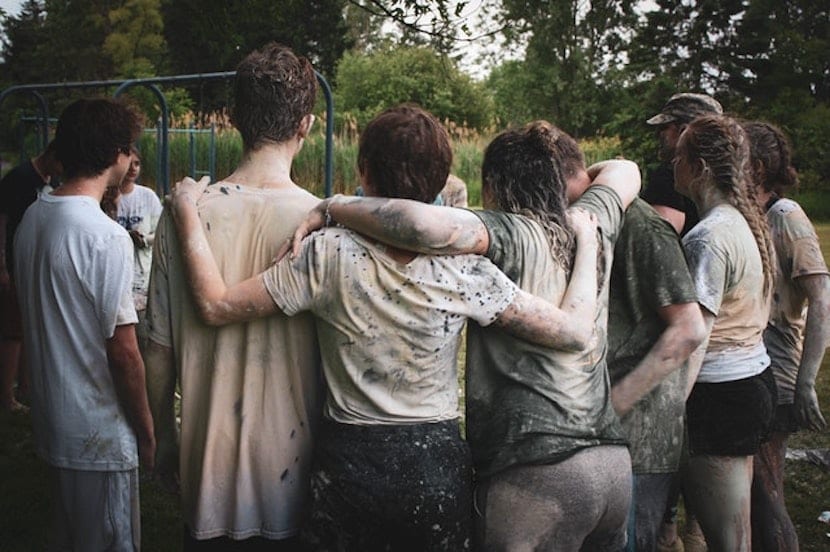
The characteristics associated with puberty and to adolescenceThey do not change from one generation to another, although there are certain social factors that can condition. Our children are or will be teenagers, we were too ... there is nothing strange or abnormal about it. In fact, sometimes it is enough to remember us 20 or 30 years ago, to understand them.
It is a stage in which identity is built, they assert themselves, feel confused and euphoric at the same time, try new things, focus on the future, de-idealize parents to identify with their peers. They also 'suffer' and 'enjoy' their hormones ... They feel that society places too much responsibility on them, but also that they are observed with a critical eye. In general, older and younger, we can do better, but without forgetting that an adult brain has just matured, not that of a 15-year-old boy, so expecting more than they can do is unreal and absurd; as it is to encourage them to "get older before their time".
Do we overvalue popularity?

And on many occasions it is not that we literally encourage them, but we do allow the audiovisual content to penetrate their mind, at the same time that (for various non-judgmental reasons) we have less presence in their lives than it would need.
About two or three years ago I read an article in the New York Times, which made me uneasy, and I had not yet had the opportunity to share here, it is titled "Cool at 13, adrift at 23"… Something like 'Cool at 13, lost at 23 ". It is based on a study that had been published in Child Development, and in it there is talk of some possible consequences of certain early behaviors that in favor of popularity, teens can play.
It is worth saying that at home we have had to redefine the concept of “popularity” several times, because almost from the first moment in which children start secondary school, it is a rising value, and in such a way it dazzles who is popular, that other girls and other boys with less “brilliant” abilities (socially speaking) are displaced (and not even in the shadows). It is not about a problem that they generate, it is about the way we are educating from the family and society.
Educate in responsibility, also when they are teenagers.

We instill in them anti values such as competitiveness, narcissism, self-improvement (but at the expense of others), excellence (without generosity), immediacy, materialism, individualism, etc. Those of us who have to review our value system are adults, I have no doubt about that..
We have all heard that reaching adolescence, reckless behaviors that do not ponder decisions can increase. Depending on how we take these statements, they may seem like mere labels, although the truth is that the explanation lies in their own development, and the vital moment they go through. However, the work that the NYT mentions, is not focused so much on whether they are more or less reckless, but in the adoption of repeated risky behaviors, which they perform only to impress, and because others are impressed.
Pseudo-maturity can have a hidden face.

It is what is called a pseudo-maturity, and it can cause once adulthood is reached, delay in studies, lack of social skills, or problems maintained by toxic consumption.
And there is nothing better than letting the natural development of adolescence take its course. Understand that they are more autonomous and independent, but also that to be so they do not need to resort to alcohol or other drugs. Allow them to find their space, and at the same time reflect on other 'spaces' that are socially admitted, but perhaps not the most appropriate (private premises, attendance at events for the elderly, etc.). In addition, I am clear that the presence of the family is still necessary, but from a distance, of course. Because parents are still references, but they should be by setting an example, and not doing strange things like buying 'good' alcohol so they can take them to a local holiday (so they don't have to drink 'anything').
When assessing, it also happens that we transmit our judgments to the children, and they in turn project them onto other girls or boys. The best is not what almost everyone likes, the best is diversityAnd sometimes a girl who travels alone to spend a few days at her grandparents' house is more mature than a girl who dresses as an adult and buys alcohol to spend the night; although at first she may be seen as strange for not wanting to go out. In any case, about freedoms this society still has a lot to learn, and one of them would be related to the right of mom and dad to approach their children, speak, listen without judging, offer to help and show alternative paths. If instead we implicitly or explicitly approve anything, and do not express our values, we deprive our children of a very enriching contribution.